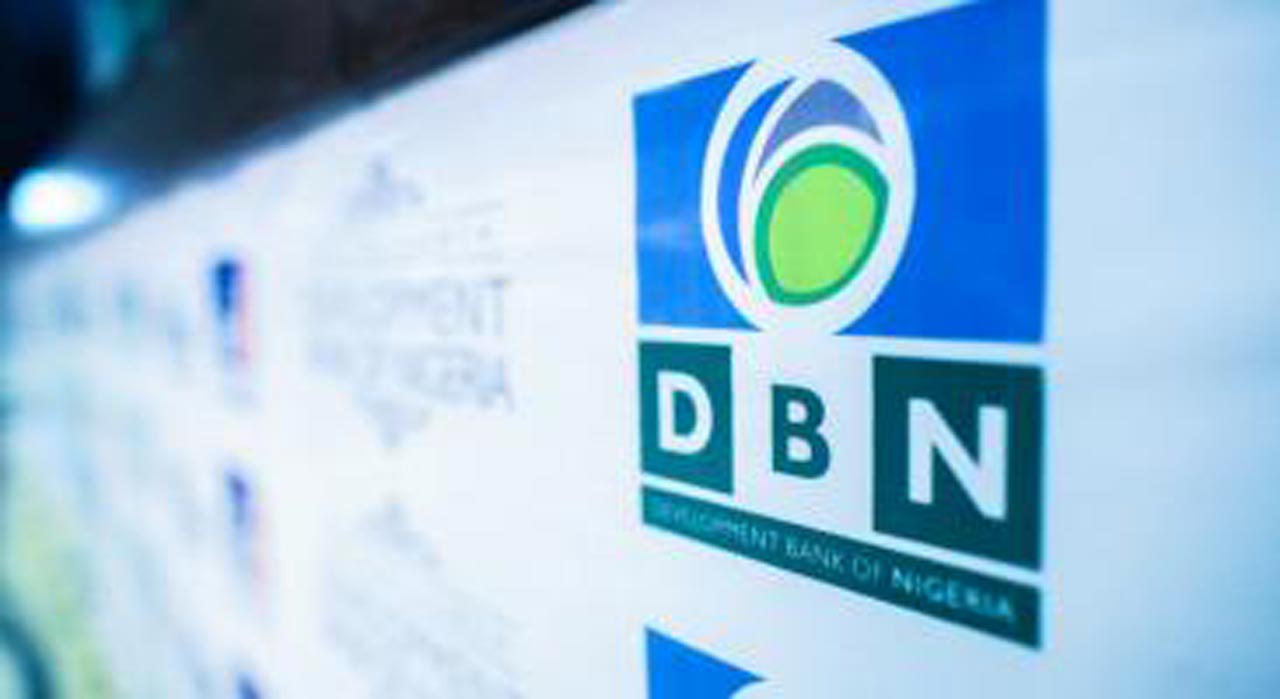Banking
Banks Set Monthly Cash Deposit Limit for Domiciliary Accounts

By Dipo Olowookere
The amount of cash that can be deposited into domiciliary accounts of customers in Nigeria has been reduced by banks, Business Post has learned.
This new development is coming after the Central Bank of Nigeria (CBN) indefinitely extended a scheme that allows beneficiaries of diaspora remittances to get an extra N5 for every $1 received.
The Naira 4 Dollar promo was introduced by the apex bank and became effective from Monday, March 8, 2021, and was to initially last for only two months.
However, last week, the banking industry watchdog issued a circular to announce that the initiative is to now run till further notice.
“Further to the CBN circular referenced TED/FEM/PUB/FPC/01/003 dated March 5, 2021, on the above subject matter, we hereby announce the continuation of the scheme until further notice.
“All aspects of the operationalization of the programme remain the same.
“Please take note and ensure compliance,” the circular issued last week had stated.
The Naira 4 Dollar policy was introduced to boost FX liquidity as the country was experiencing a shortage in supply as a result of a decline in revenue from crude oil sales.
An earlier notice from the central bank had explained the promo would help Nigeria “to make the process of sending remittance through formal bank channels cheaper and more convenient for Nigerians in the diaspora.”
It had also said the scheme would “ensure that remittance flows and diaspora investments become a significant source of external financing” for the nation.
Over the weekend, this newspaper sighted an e-mail from one of the commercial banks, saying customers are no longer allowed to make a deposit of more than $5,000 in a month into a domiciliary account.
However, there is no limit set for electronic transfer into such accounts.
“There is a $5,000 monthly cash deposit limit,” a part of the notice read.
“Cash funded transfers to beneficiaries with accounts in other banks in Nigeria are no longer allowed,” the notice also stated, encouraging customers “to make more deposits via electronic transfers.”
A banker with one of the tier-one banks in Nigeria, who asked not to be named informed Business Post that the cash deposit limit was put in place to prevent customers from exploiting the CBN promo as once feared by a renowned economist, Mr Bismarck Rewane.
Mr Rewane had said two months ago that some Nigerians could send FX to their loved ones at home, withdraw it for the N5 cash bonus and then transfer the funds back abroad to be re-transferred back into the country.
“In any case, you collect cash, and you take it to the parallel market or autonomous sources to sell the Naira, and then come back and you get the N5. What could happen is that you could turn $1,000 back again to your brother, who will bring it back.
“So, what could happen is that there could be what I call playing with neurons, the same money turning around the velocity of separation increasing, whilst the quantity supplied into the market will not increase,” he had told Channels TV after the CBN announced the policy.
Banking
Access Bank Opens Branch in Malta to Strengthen Europe-Africa Trade Ties

By Modupe Gbadeyanka
To strengthen Europe-Africa trade ties, Access Bank has opened a new branch in Malta. It will focus on international trade finance, employing approximately 30 people in its initial phase, with plans for controlled expansion over time.
It was learned that this Maltese branch was established by Access Bank UK Limited, the subsidiary of Access Bank Plc, which is also the subsidiary of Access Holdings Plc, which is listed on the Nigerian Exchange (NGX) Limited.
Access Bank Malta Limited commenced operations after obtaining a banking licence from the European Central Bank (ECB) and the Malta Financial Services Authority (MFSA).
Access Bank said the licence marks a transformative milestone in bolstering Europe-Africa trade flows.
Malta, a renowned international financial centre, and a gateway between the two continents, is strategically positioned to play a pivotal role in advancing commerce and fostering economic partnerships.
This strategic expansion into Malta enables The Access Bank UK Limited to leverage growing trade opportunities between Europe and Africa.
It underscores the organisation’s commitment to driving global trade, financial integration, and supporting businesses across these regions.
“By establishing operations in Malta, we will gain a foothold in a market that bridges European and North African economies, moving us one step closer to our goal of becoming Africa’s Gateway to the World.
“It further enhances our bank’s capacity to support clients with innovative solutions tailored to cross-border trade and investment opportunities,” the chief executive of Access Bank, Mr Roosevelt Ogbonna, stated.
“Europe has emerged as Africa’s leading trading partner, driven by initiatives such as the Economic Partnership Agreements between the EU and African regions and the African Continental Free Trade Area (AfCFTA).
“With Europe-Africa economic relations entering a new phase, The Access Bank Malta Limited is ideally positioned to deepen trade and meet the financing and banking needs of our clients in these expanding markets,” the chief executive of Access Bank UK, Mr Jamie Simmonds, commented.
Also speaking, the chief executive of Access Bank Malta, Renald Theuma, said, “Malta is uniquely positioned as a bridge between Europe and Africa, making it an ideal location for our subsidiary. This move allows The Access Bank Malta Limited to engage more closely with customers in Europe and deliver tailored financial solutions that drive growth and connectivity across both continents.”
Banking
Goldman Sachs, IFC Partner Zenith Bank, Stanbic IBTC, Others to Empower Women Entrepreneurs

By Adedapo Adesanya
The International Finance Corporation (IFC) and Goldman Sachs have announced a new partnership with African banks, including Nigeria’s Zenith Bank and Stanbic IBTC Nigeria to support the Goldman Sachs 10,000 Women initiative, a joint programme launched in 2008 to provide access to capital and training for women entrepreneurs globally.
The two Nigerian banks are part of nine financial institutions from across Africa which have agreed to join the 10,000 Women initiative committing to leverage the business education and skills tools the programme provides to create more opportunities for women entrepreneurs across the continent by providing access to business education.
Others banks include Stanbic Bank Kenya, Ecobank Kenya, Ecobank Cote d’Ivoire, Equity Bank Group, Banco Millenium Atlantico – Angola, Baobab Group, and Orange Bank.
Speaking on this, Ms Charlotte Keenan, Managing Director at Goldman Sachs said – “10,000 Women has had a powerful impact to date, but we know that there are more women to reach and more potential to be realized.
“We are delighted to partner with IFC to supercharge the growth of women-owned businesses across Africa, and mainstream lending to female business leaders. We remain committed to supporting entrepreneurs with the access to education and capital that they need to scale.”
Since 2008, the 10,000 Women initiative has provided access to capital and business training to more than 200,000 women in 150 countries.
“This expanded initiative marks a significant step forward in creating equitable economic opportunities for women in Africa, enabling them to build stronger, more resilient businesses and to realize their entrepreneurial goals,” said Ms Nathalie Kouassi Akon, IFC’s Global Director for Gender and Economic Inclusion.
Goldman Sachs’ 10,000 Women initiative complements the Women Entrepreneurs Opportunity Facility (WEOF), launched in 2014 by Goldman Sachs and IFC as the first-of-its-kind global facility dedicated to expanding access to capital for women entrepreneurs in emerging markets.
Banking
Development Bank of Nigeria Wins Financial Inclusion Leadership Award

By Aduragbemi Omiyale
In recognition of its unwavering commitment to fostering access to financing for Nigerian micro, small and medium enterprises (MSMEs), Development Bank of Nigeria Plc has been rewarded with the Financial Inclusion Leadership Award at the Champions of Inclusion Nigeria Financial Inclusion Awards.
This was at the 2024 International Financial Inclusion Conference (IFIC) organised by the Central Bank of Nigeria (CBN) in collaboration with the World Bank and other stakeholders.
The chief executive of the lender, Mr Tony Okpanachi, said the recognition affirms the company’s efforts in expanding access to financial services for MSMEs in Nigeria.
“We are honoured to receive the Financial Inclusion Leadership Award, which is a testament to our bank’s commitment to expanding access to financial services for all Nigerians. This award recognises our efforts to bridge the financial inclusion gap, particularly for a priority sector like the MSMEs.
“Additionally, this award is a validation of our strategic focus on driving financial inclusion for small businesses, and we are proud to be at the forefront of this initiative that drives that. We will continue to innovate and expand our financial inclusion programmes, ensuring that more Nigerian small and startup businesses have access to services,” he stated.
On his part, the Chief Operating Officer of DBN, Mr Bonaventure Okhaimo, said the accolade demonstrates the firm’s dedication to driving financial inclusion and economic growth in Nigeria.
“This award acknowledges our Bank’s innovative approach to widening opportunities for MSMEs in Nigeria to grow and scale their businesses,” he said.
“This award will motivate us to continue pushing the boundaries of financial inclusion, exploring more innovative solutions and partnerships to expand our reach and impact.
“We are committed to ensuring that more small businesses and startup enterprises in Nigeria have access to financial services, this award will further inspire us to accelerate our efforts in this regard,” he stated.
-

 Feature/OPED5 years ago
Feature/OPED5 years agoDavos was Different this year
-
Travel/Tourism8 years ago
Lagos Seals Western Lodge Hotel In Ikorodu
-

 Showbiz2 years ago
Showbiz2 years agoEstranged Lover Releases Videos of Empress Njamah Bathing
-

 Banking6 years ago
Banking6 years agoSort Codes of GTBank Branches in Nigeria
-

 Economy2 years ago
Economy2 years agoSubsidy Removal: CNG at N130 Per Litre Cheaper Than Petrol—IPMAN
-

 Banking2 years ago
Banking2 years agoFirst Bank Announces Planned Downtime
-

 Sports2 years ago
Sports2 years agoHighest Paid Nigerian Footballer – How Much Do Nigerian Footballers Earn
-

 Technology4 years ago
Technology4 years agoHow To Link Your MTN, Airtel, Glo, 9mobile Lines to NIN

















